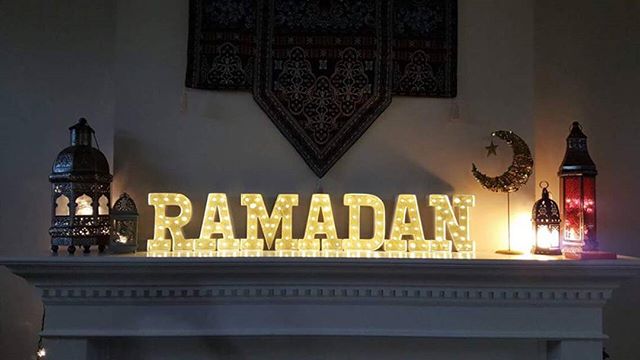Alhamdu lillah, our count of Ramadan fast at sunset today would be 15; half of the Ramadan period. Allahu Akbar! By tomorrow, insha Allah, we shall start descending and moving towards the end as next week which begins tomorrow ushers in the most crucial part of this holy season. Wednesday May 13, 2020 would be 20th day of Ramadan which is the beginning of the most virtuous stage of the sacred season. Due to the COVID-19 pandemic, this year’s would sadly be a Ramadan devoid of I’tikaf (seclusion by a worshipper in a Jumu’ah mosque during the last ten days of Ramadan). Yet, we have a choice to take advantage of Laylat ul-Qadr (the Night of Power); an activity that marks the peak of devoutions in Ramadan.
But before we talk of the Night of Power, let us ask ourselves whether we have made good use of the first half of this year’s Ramadan. How many of the exceptional opportunities offered by this unique month have we exploited? Did we care enough to engage in acts of ibadah (worship) that should expectedly strengthen our tie with our Creator? The Prophet (SAW) “The beginning of Ramadan is forgiveness; its middle is mercy; and its end is redemption from hell fire”. A Muslim is forgiven all the sins committed between two Ramadans if he observed each Ramadan fast with sincerity of faith. We must therefore never waste or misuse this great opportunity. It is a period to cleanse the inner and outer parts of our lives by asking Allah (SWT) for His mercy and for the forgiveness of our sins. Have we, in the past two weeks, sincerely turned to Allah (SWT) to confess and repent from our sins? Did we truly express the deepest sense of remorse over our past mistakes and acts of unrighteousness?
Ramadan provides opportunity for the exercise of self-discipline, self-restraint, and self-evaluation. It should therefore improve our relationship with Allah (SWT). Generally, it is expected to enhance our spiritual status. Constant recitation of the holy Qur’an; observing tarawih prayers (usually after the obligatory isha’i prayer); listening to preaching or tafsir (commentaries of the holy Qur’an) from radio and television stations; and giving alms are few of the virtuous acts that should bring us closer to Allah (SWT) and take us to a higher spiritual level.
Ramadan is a season to maximize the benefits that come along with it. Imam Muslim relates on the authority of Abu Dharr (RA) that in every tasbih (that is, saying Subhana-llahi), there is reward; in every takbir (that is, saying Allahu Akbar), there is reward; in every tahmid (that is, saying Alhamdu lillah), there is reward; and in every tahlil (that is, saying La ilaha ila llah), there is reward. For instance, we can continue to engage in these acts of glorification when we are not observing non-obligatory (nafilah) prayers or recite the Qur’an or listen to commentaries of it. Let us not give Satan an inch of space to toy with our time and psyche. Let us remain very dutiful in observing this Ramadan as if it were the last in our lifetime. Some of those who saw the start of this Ramadan have gone; leaving us behind not because it is their choice to go or ours to stay back.
The devil, Satan, is always unhappy when a servant of Allah (SWT) makes good use of his time in Ramadan. He works so hard to influence us negatively so that we oversleep during the day and at night. Satan struggles to keep us busy with hopeless activities that profit us less. He employs various tricks to distract Muslims from benefiting from the spiritual privileges of Ramadan, which come but once in twelve months. We must be decisive in defying Satan’s mischiefs if we wish to be one of those to reap the immeasurable rewards of Ramadan. Let this spiritual battle be the last one in which the devil will forever remain defeated such that he is left with no strength to mislead us again in the rest of our life. Let us use this Ramadan to build a strong foundation of taqwa (fear of Allah) in our hearts; leaving no space of the sneaking whisperer to build his deceitful workshop. We can achieve this if we make the holy Qur’an our constant companion; the remembrance (dhikr) of Allah (SWT) constant activity of our tongue; and the appreciation of Allah’s favours our mental preoccupation.
On every night of the month of Ramadan, Allah (SWT) commands: ‘Where are those asking for my forgiveness? I’ve forgiven them; where are those who have repented? I’ve pardoned them; and for those who have demands, I’ve granted their requests’. Ramadan is full of virtuous occasions. It is a period for believers to purify themselves and seek divine intervention in matters that trouble their peace and wellbeing. Ramadan is a month of mercy during which prayers of devoutees are specially answered. Allah (SWT) in Qur’an 2:186 affirms, ‘When my servants ask thee concerning me, I am indeed close (to them). I listen to the prayer of every supplicant when he calls on me: let them also with a will, listen to my call and believe in me: that they may walk in the right way’.
We have no reason to misappropriate the virtues of Ramadan by failing to solemnly seek refuge in Allah (SWT) against COVID-19. Let us deploy all that Allah (SWT) has favored us with including good health, physical strength, and an apt understanding of Islam to passionately pray and appeal to Allah (SWT) to tackle the COVID-19 pandemic. Let us be strongly united in seeking Allah’s intervention to permanently push coronavirus into extinction. The fatality we have experienced so far and the looming damages that are starring weak economies around the world including Nigeria are better imagined. With weak response mechanisms to Coronavirus in Nigeria; with a huge percentage of the population ignoring the use of personal protective equipment; and with different states in the country enforcing inconsistent restriction measures; it would not be an overstatement to insinuate that only divine intervention can wrestle COVID-19 within a short period. May Allah (SWT) quickly intervene and kick COVID-19 out of this planet, amin and amin and amin. Ramadan Kareem!

 Join Daily Trust WhatsApp Community For Quick Access To News and Happenings Around You.
Join Daily Trust WhatsApp Community For Quick Access To News and Happenings Around You.


